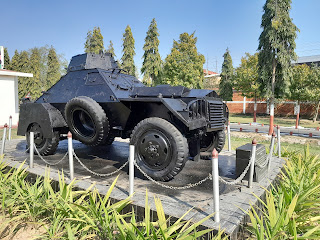A little bit more than patriotism. A little bit lower than jingoism. --- Nirendra Dev
Subscribe to:
Post Comments (Atom)
Amid controversial remarks made by Muivah on Peace Parleys ... and NNC leaders and others raising the bogey of 'Anti Shillong Accord' killings ... Govt revisiting the list of those eliminated in 1979
It is one of the gory chapters of Nagaland's contemporary history. It is the tragic tale of bloodshed, pain and tears. In 1979 and aroun...

-
Do you want another war ? The biggest challenge about writing on insurgency and chiefly the insurgent leaders of north east -- the militant...
-
Four-time BJP MP from Nagaon in Assam Rajen Gohain has resigned along with 17 others. Making things worse, Gohain says: "The governmen...
-
It's impossible for a society or any organisation and a 'security system' to predict every wrong that will be done by mischievou...





No comments:
Post a Comment